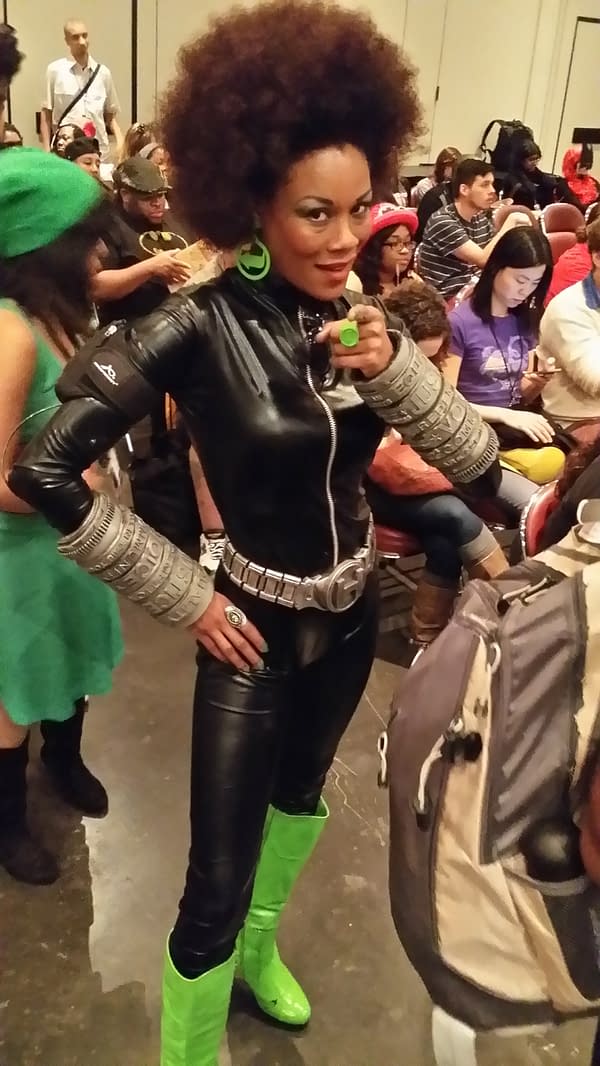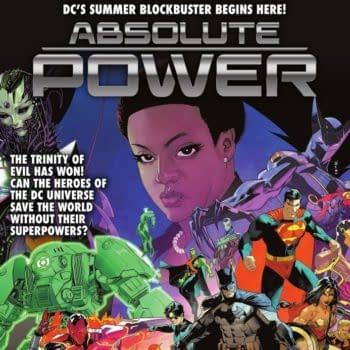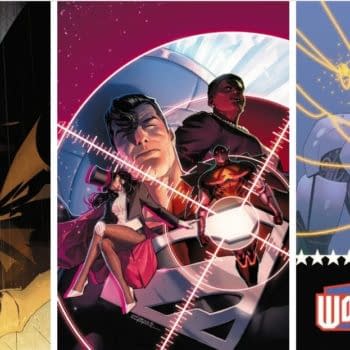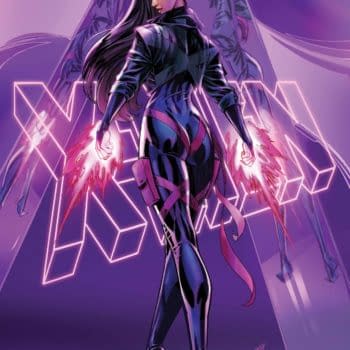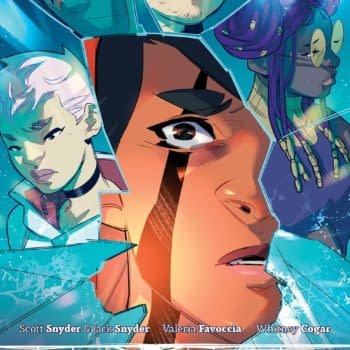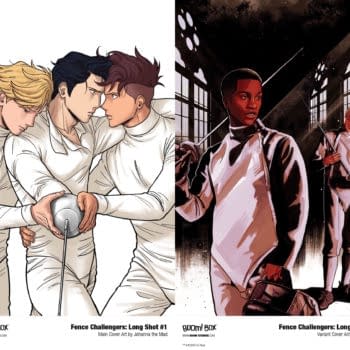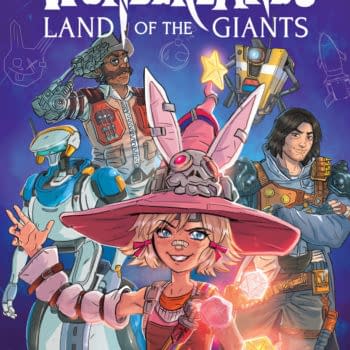Posted in: Comics | Tagged: Alice Meichi Li, Alitha E. Martinez, Barbara brandon-Croft, Comics, cosplay, entertainment, Gaisha Vi, Gender In Comics, Jamila Rowser, Juliana Smith, new york comic con, race in comics, Regine C. Sawyer, Vanessa Verduga, women of color
What If Invisibility Really Was Your Secret Power? Race And Gender In Comics At New York Comic Con
Jemal Flores writes from New York Comic Con for Bleeding Cool:
Invisibility: have you ever wanted that power? You could do what ever you like. You could go anywhere,do anything at any time. To be invisible is cool, you think, right? But what if you actually were invisible ? What if no one cared if the they saw you? What if no one gave you a second thought?
That is what it feels like to be invisible. This is how some women feel, in the comics medium.
Comics at one time were considered stuff for children. It was a story telling medium designed to be read by kids. The creators were straight white men. They wrote primarily for children who were the same race that they were. Today readers of comics have changed. In the panel were moderator Regine C.Sawyer, Artist Alitha E. Martinez,Vanessa Verduga, Jamila Rowser, and Alice Meichi Li. Along with them, Juliana 'Jewels' Smith,Barbara Brandon-Croft and Cosplayer Gaisha Vi were there to discuss the issues of race, gender bias, and sexism in the comics medium today.
The Women in the panel were asked how they were drawn into the world of comics.
Martinez started draw comics because she wanted to tell a story. Smith wanted to create her own book, to get her to educate her students. Vi's Father had a big influence on her cosplay. She is now seen as a role model and prefers to dress as characters not cosplayed by many others. She likes to cosplay as the George Perez version of Starfire, not the New 52 version. While others were influenced by their brothers or other family members.
Meichi had nothing to do when she was young, but to read her brothers X-men books by Chris Claremont, she also started watching Sailor Moon as a child. She wanted to write the heroes journey from the woman's point of view. A view point that is about others perceptions of females in the world, influenced by goddesses of myth. Brandon-Croft is a comic strip artist who is influenced by her own life and history,she writes the Where I'm coming from strip. Verduga looked up to Linda Carter, who is both Irish and Latino, something that is not well known.
Female fandom is the fastest growing population in the comics. Panels like this one have become bigger over the last few years,to the surprise of many. Alice Meichi Li was discouraged, but still amazed that there are lots of people out there and how much it has grown. There may still be a lack of representation of women in comics. It is know that there is a lack of white females, on the creative side and on the page as characters. There is almost no representation of anyone else. How many characters can you count or even name that are of any other race that is not white from superhero comics in the U.S.? Are they invisible?
The women on the panel were asked the questions, "Have you ever been told that you are a woman of color, by people in the industry? Have you ever felt aware of your ethnicity?" The answers were not surprising to my ears. One panelist was told that they were not ready for her yet. When she walked in for a job, as if she was the cleaning lady. She was invisible. They could not 'see' her.
The panelists suggested that the women of color in the industry may feel the need to change their name or down play their ethnicity. They found a third option, to make their own way. Comic strip artist Barbara Brandon-Croft recounted a story of how when she was on Good Morning America, the white male reporter asked her how she was going to get her comic strip into more papers. Brandon-Croft was already syndicated in 12 papers. She comes from the "Say it loud. I'm black and I'm proud" era. For her that song and expression means something. Brandon-Croft was insulted. Seeing your own kind does influence you in what you watch and what you read, she said.
The women agreed that being a woman of color, don't think you can get by on your talent. The industry is happy with the status quo. Companies want to continue to make money off what is already out there. If the beast keeps getting fed women of color will remain on the fringe. You have to do your own thing.
Today's society is feeding us a hyper-sexualized view of women, they said. This is one thing that Geishi Vi is well aware of. Cosplayers hear things said like "Why do you dress like that?" Women of color should ask for better. If you want to change, you have to force it. If you want it you have to go and do it yourself, the panelists agreed.
Jemal Flores is Comic Book Collector, & Charity Cosplayer. He is a fan of all things nerdy. You can follow him @chojinmahn on Twitter.




